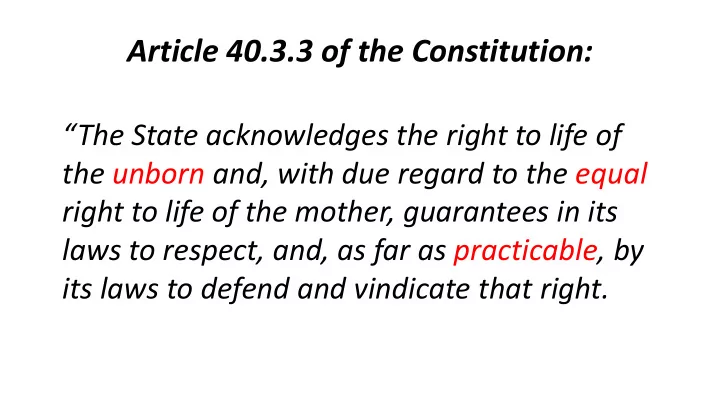

Article 40.3.3 of the Constitution: “The State acknowledges the right to life of the unborn and, with due regard to the equal right to life of the mother, guarantees in its laws to respect, and, as far as practicable, by its laws to defend and vindicate that right.
Terminology “ fatal foetal abnormalities ” or “ life limiting conditions ” or “ incompatible with life ” Issue for medical experts
Background D v. Ireland X was the recognition of an exception to Article 40.3.3; It is arguable that X does not exclude a further exception; An argument could be made that the constitutionally enshrined balance between the right to life of the mother and of the foetus could shift in favour of the mother when the “unborn” suffered from an abnormality incompatible with life (§90). Therefore, the question of whether Article 40.3.3. excluded an abortion in the case of fatal foetal abnormality, while novel, was arguable (§92). Therefore, D had not exhausted her domestic remedy and the matter could not be addressed on the merits.
Arguments for allowing abortion in the case of fatal foetal abnormality Unborn does not include foetuses with no prospect of life outside the womb and does not meet the definition of unborn in the 2013 Act; The lives in question are not equal; It is not “practicable” to vindicate this type of life.
Arguments that 40.3.3. does apply to fatal foetal abnormality No medical certainty that foetus will not be born alive; Definition of unborn in the 2013 Act is irrelevant; Roche v. Roche suggests all embryos benefit from Article 40.3.3.
Recent Developments Private Members’ Bills Mellet v. Ireland Position of Ministers for Health – Private Members’ Bills unconstitutional
Recommend
More recommend